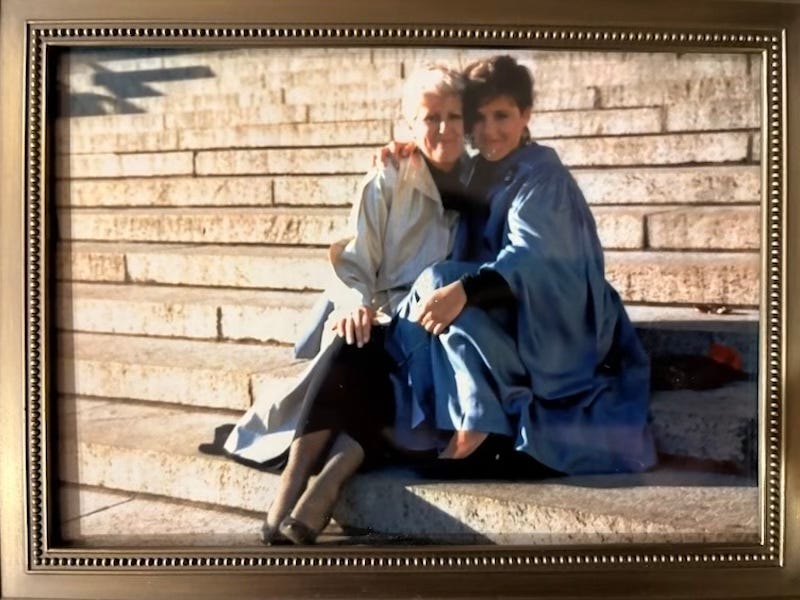I was born curious. But, as a young person, I had little exposure to meaningful learning.
My public schools were mediocre at best and roundly diminished human potential at worst. In junior high and high school, students interested in learning were often treated as if they were trying to be unpopular.
My mother, however, always encouraged me to learn and become what I could—as she wished she could have.
Columbia University opened the doors to all of that for me.
Far from my sheltered, predictable, and largely homogenous suburban life, here I thought was life in earnest—diverse, dynamic, challenging, and rife with potential.
I had, of course, a great deal of catching up to do. But Columbia allowed me to try with the help of a generous scholarship. I graduated magna cum laude and stayed on to earn a master’s degree in international affairs and journalism.
From there, I dreamt of being like the journalist Oriana Fallaci or Sylvia Poggioli, traveling and reporting from the world’s hotspots.
Then I saw how many hotspots we had here in the United States: racial inequality, gender inequality, discrimination against LGBTQ+ people, climate change, and more.
Injustice hotspots all. Against our people.
Meanwhile, as it happened, I fell in love with a woman—which made American injustice feel all the more personal. Why, I wondered, did people suddenly treat me differently because I was partnered with a woman rather than, as I previously had been, a man?
Unable to fathom the answer, I dove into studying prejudice. I read book after book, talked to person after person, and taught a class at New York University about representations of Black, Latino/Latina, and LGBTQ+ people in the media. It was as illuminating to me as it was to my students.
In an effort to go deeper, I applied for a fellowship at Harvard University’s Kennedy School to research the perpetuation of prejudice, which the late psychologist Gordon Allport defined as “being down on something you are not up on.”
To my astonishment, I was accepted. Arriving at Harvard on the first day, I cried. Again, I was being supported in following my curiosity—my joy.
The opportunity to follow my curiosity and joy also gave me a powerful sense of responsibility to share my learnings with others and work for the greater good. So, I went on to work on behalf of LGBTQ+ rights, women’s equality, and climate action.
Perhaps at this point, I need not say that witnessing the U.S. government’s recent financial strongarming of Columbia, Harvard, and other great universities—for the sake of power, not curiosity, advancement of learning, or our greater good—is heartbreaking to me.
Sadly, however, it is.
I also know it would, more sadly still, make my mother roll over in her grave.
But Harvard set a powerful example yesterday of courage, integrity, and standing up for the greater good, even at great cost.
Again, it teaches me what it means to work to right wrongs and improve things—to aspire to be a beacon for good—even when the challenges are great.
This is the work I do today by supporting individuals and organizations striving to advance the greater good through my program, the Better Now Shift™. If you’d like to learn more, please reach out. I’d love to connect.
Join Me for a MRS. ROBINSON Virtual Watch Party This Thursday
I am excited to collaborate with Project Dandelion to host a virtual watch party featuring a powerful story about female leadership, human rights activism, and climate action—against the odds.
MRS ROBINSON tells the inspirational life story of Mary Robinson, Ireland’s first female President, a pioneering UN High Commissioner for Human Rights, and Nelson Mandela's successor as Chair of The Elders.
Please join me this Thursday, April 17th, at 7 p.m. ET, 6 p.m. CT, 5 p.m. MT, and 4 p.m. PT for inspiration and conversation. The documentary runs for one hour. We’ll connect for the first 15 minutes, and then I’ll stay on for 30 minutes after for anyone who wants to chat about it.




